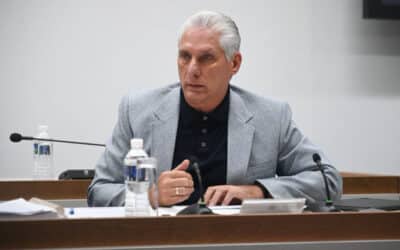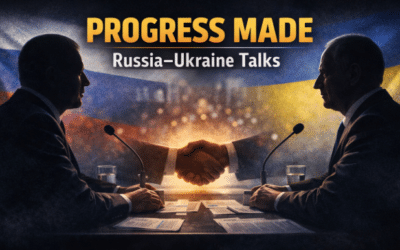The White House has accused Russia of weaponizing energy by reducing gas exports to Europe. On Wednesday, Moscow announced that Nord Stream 1 would close, citing sanctions and maintenance as the cause. While Washington’s European partners have attempted to reduce their dependence on Russian energy exports, the continent’s leaders are warning their people of coming hardships.
In response to Russia’s invasion of Ukraine, President Joe Biden announced a full-scale economic war designed to cripple Moscow’s economy. Yet the Russian currency has strengthened during the six months since the war started, and America’s European allies are experiencing spiking energy prices.
Biden’s sanctions regime was intended to isolate Russia and disable the country’s war machine. However, Moscow is now cutting exports to Europe, and Western officials are complaining about the impacts of Russia’s economic war.
The charge of “weaponized energy” was made by National Security Council coordinator for strategic communications John Kirby. Markus Soeder, the premier of the German state of Bavaria, also said that Russian President Vladimir Putin “is playing a game with Nord Stream 1 and Nord Stream 2. I think it’s a kind of game. Our problem right now is that we are not in a position to adequately respond to this game.” However, it was Berlin that elected to keep the Nord Stream 2 pipeline closed in February amid rising tensions with Moscow.
Maria Tadeo, the European correspondent for Bloomberg Television, says Putin believes he has gained the upper hand in the economic war and is now attempting ‘sanctions Jiu Jitsu’ on the West. “By now it is no secret that Russia wants to force a volte-face on sanctions by weaponizing energy,” she wrote.
With current gas prices in Europe near ten times the average, David Stockman, Director of the Office of Management and Budget under President Ronald Reagan, concluded that the sanctions war has been entirely unable to achieve its goals. He writes, “The fact is, the Sanctions War has been an abysmal failure in terms of punishing the Russian economy and Putin’s ability to persevere in Ukraine.”
Stockman said things are unlikely to get better for Europeans this winter. “Moreover, in the midst of soaring heating and electric bills, consumers may face a double whammy of high electric bills plus blackouts too,” the former congressman wrote.
Some European leaders agree with Stockman about the dismal winter ahead. In a recent speech, French President Emmanuel Macron warned about the coming “end of abundance.” He continued, “our freedom – the system of freedom, which we are used to living in – has a cost. And at times, if it needs to be defended, that could entail sacrifices to reach the end of certain battles we must carry out.”
German Foreign Minister Annalena Baerbock stated the policy will not change even if suffering Europeans demand relief. “If I give the promise to people in Ukraine – ‘We stand with you, as long as you need us’ – then I want to deliver,” she said late last month, adding “No matter what my German voters think, but I want to deliver to the people of Ukraine.”
While the US and its European allies have cut some imports from Moscow, over $6 billion in Russian goods have entered American ports over the last six months, with the White House even encouraging American importers to buy fertilizer from Russian sellers. Moreover, the Associated Press found that American and European companies are importing metal from a Russian firm that produces parts for Moscow’s fighter jets.
































